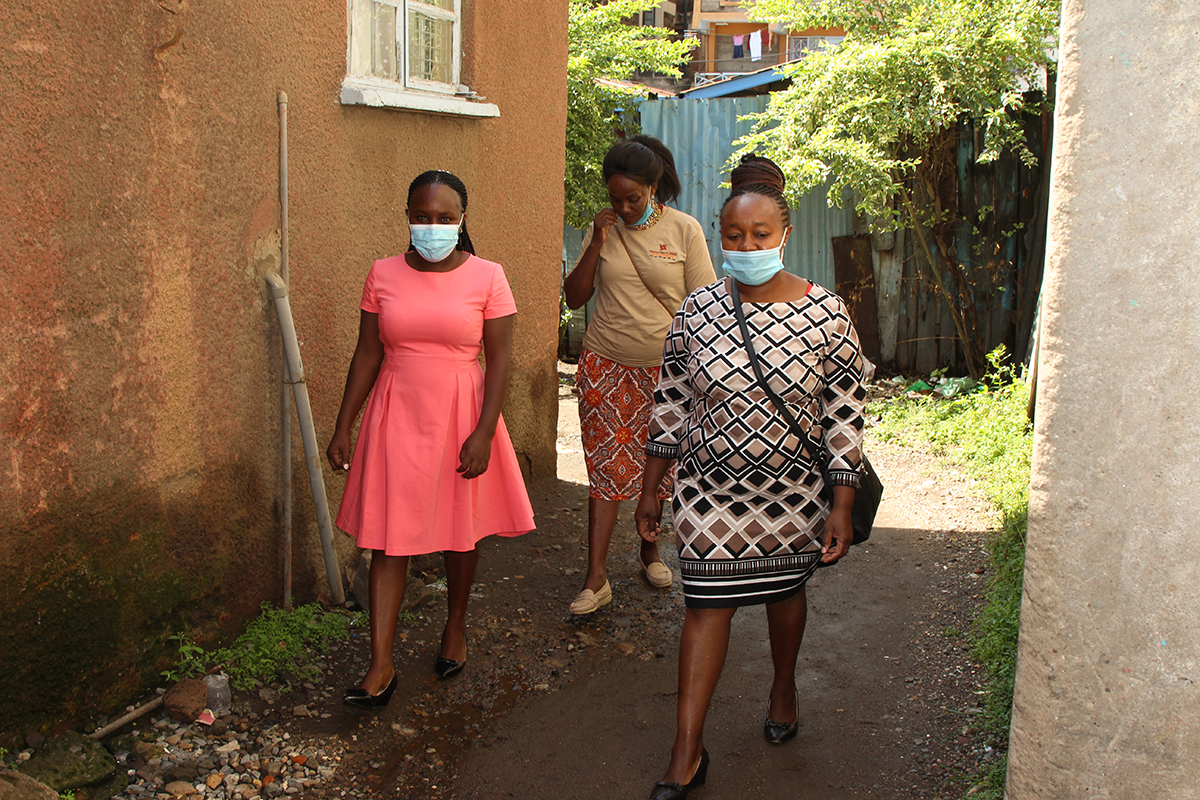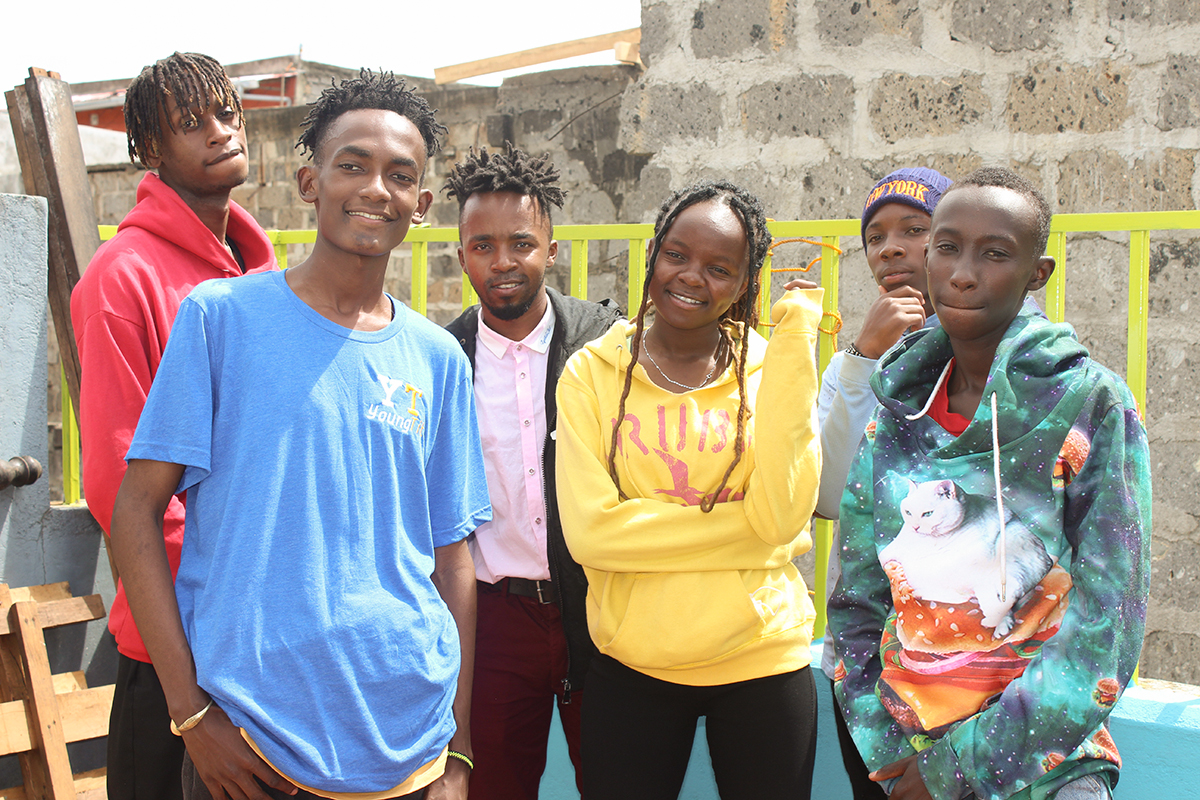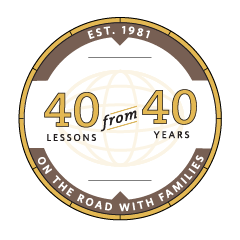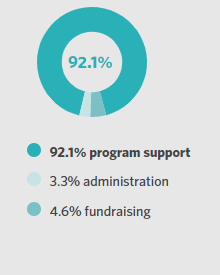
In The Community
A lesson on being present for those we seek to serve
By Nickson Ateku
November 16, 2021 | 40 Years 40 Lessons
The time is 5 a.m. I must be ready within 30 minutes or deal with traffic congestion on the roads leading to the big city under the sun, Nairobi. I grab my bag and jump onto a motorcycle (commonly known as a matatu in Kenya), which drops me at the bus stop 5 minutes away. I am visiting Mathare Valley for the very first time.
It is a bit chilly as it is a rainy season. The fares are hiked from the normal 60 shillings (6 cents) to 100 shillings ($1), a common scenario when it rains. I scramble for the available space on the bus and my journey to Mathare is on.
In this wee hour of the morning, I find businesswomen carrying their merchandise to and from the Marikiti and Gikomba markets. The city is abuzz with activity, and it seems like everyone is in a hurry.
Within an hour, I get on the next bus in the city center headed for Huruma (an estate in Mathare) and this one is a little rugged. I pray the engine does not stop in the middle of the trip. Everyone seems to know the driver, and the confidence he exudes when greeted by the mama mbogas (vegetable vendors) makes me relax.
It is my first time to Mathare Valley. I had just been hired by Unbound as the regional reporter for Africa. My expectations dwindle as I come face to face with reality in this informal neighborhood. The local Unbound office is located near an army barracks. I was nervous as I entered. It was my first time at the office and in the community.

Frida Wangari (left) is the coordinator of the Unbound program in the Mathare Valley slum community in Nairobi, Kenya. Here she walks through the streets of Mathare accompanied by Cecilia (center) the mother of a sponsored child, and Catherine, another staff member.
It must have been an awakening that only God planned. I come in and I am met at the door with hugs and hearty greetings. I am offered a cup of coffee and ushered into the coordinator’s office for a briefing and introduction.
I reside in Kangemi, on the outskirts of the city, where I am used to walking around with my phone in my hands, sometimes at late hours, without worrying too much. Before we visit families, I am reminded that we can’t carry any jewelry, smartphones or watches to the neighborhood. In fact, I am forced to leave my cameras at the office.
I am assigned to my new friend Peter, a social worker who is to guide me in the community. A group of mothers arrive at the office just in time, and after introductions we start our journey. We feel secure as Unbound mothers walk side by side with us. They are respected by the community.
A few meters from the office, we follow a dirt road leading to Kiamaiko. This is one of the most dangerous parts of this community. It is also one of Kenya’s many slaughterhouse areas. The meat that serves Nairobi comes from this area. A good number of Unbound families work here. The open and raw sewer and the narrow and dark alleys are frightening, but we feel safe with the Unbound mothers.
The families are kind to us. They are happy to see us. Word spreads quickly that we are visiting and conducting home visits. Parents want to be visited, and some insist though they are not on the schedule. We give it our best but, unfortunately, we can’t visit them all as I have to get back home.

Sponsored youth Moses (front, left) lives in the Mathare Valley slum, where he organized a dance troupe with some of his friends. Behind him are (from left) Erick, Norbert, Joy, Abdul and Tato. Groups like this give young people an outlet for their energy and creativity.
The resilience, courage and hard work is all I see as I visit these wonderful homes in a “world” where I have never been before. I was gifted eggs, fruits and vegetables to take home.
We have been walking close to 7 hours since we left the office. We have visited more than 15 families. I am exhausted, have a headache and I’m hungry, but I don’t let Peter know. At 3 p.m., we retreat to a roadside kiosk and buy some ripe bananas and a bottle of water to quench the thirst. The endurance in my colleague is astounding. This is his daily routine.
As I board a matatu (motorcycle taxi) back to the city, I ponder the whole exercise and remember that the Gospel demands us to be close to people, especially those struggling in life. The cohesion, economic resilience, efforts and love Unbound families have provide a great lesson. The future is bright.
As I board a matatu (motorcycle taxi) back to the city, I ponder the whole exercise and remember that the Gospel demands us to be close to people, especially those struggling in life.
— Nickson Ateku, UNBOUND'S REGIONAL REPORTER FOR AFRICA


About the author:













